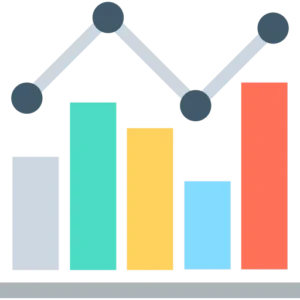Online buying and selling transactions are now growing rapidly, along with technological advances and changes in people’s shopping patterns.
With this rapid development, various new terms have emerged in marketplaces, social media, and online buying and selling communities that may still feel foreign to some people, especially for those who are new to the world of e-commerce.
This article will discuss various important terms that need to be understood in the world of online buying and selling, starting from payment methods, transaction status, to special terms that are often used in e-commerce and crypto.
Why is Understanding Online Buying and Selling Terms Important?

Understanding the terms in online buying and selling is certainly very important so that you can transact more smoothly and safely. Here are some reasons:
1. Prevent Misunderstandings During Transactions
By understanding the terms used in online buying and selling, both sellers and buyers can more easily understand the terms and conditions of the transaction. This helps avoid confusion that can arise during the buying and selling process.
2. Speed ??Up the Buying and Selling Process by Understanding Common Terms Used
When you are familiar with the terms often used in the marketplace, you no longer need to wonder about their meaning. This makes transactions run faster, saving time for both parties.
3. Avoid Fraud by Recognizing Terms Often Used in Scam Mode
Many fraud modes in online buying and selling take advantage of ignorance of certain terms. By recognizing these terms, you can be more vigilant and avoid fraud traps.
4. Facilitate Communication with Sellers and Buyers in the Marketplace or Community
Knowing the terms used in the marketplace or online buying and selling community makes communication between parties easier. This will make the process of bargaining or discussing products more efficient and clear.
People Also Read This: What is Want To Buy? Complete Guide to Buying and Selling Transactions!
Basic Terms in Online Buying and Selling
Here are some basic terms that are often used in online buying and selling that you need to know to make transactions easier.
1. COD (Cash on Delivery)
COD (Cash on Delivery) refers to a payment method where buyers make payments after the goods are received in their hands.
This method is suitable for buyers who are not yet comfortable making payments via transfer or who prefer to pay directly on the spot when the goods arrive.
2. PO (Pre-Order)
PO (Pre-Order) is a sales scheme where buyers must wait for goods that are not yet available, either because the goods are still in production or waiting for shipping from abroad.
In this scheme, buyers will receive the goods at a predetermined time after the goods are available.
3. Ready Stock
Ready stock means that the goods are already available in the warehouse or store and can be sent immediately after the transaction is complete. This is different from Pre-Order (PO) which requires buyers to wait for the goods.
As for products with ready stock status, they are usually more in demand because shipping can be done quickly, without waiting a long time.
4. Flash Sale
A flash sale is a big discount promotion that only lasts for a limited time. This usually triggers fierce competition between buyers who want to get the product at the best price before the time runs out.
5. Out of Stock (OOS – Out of Stock)
OOS (Out of Stock) means that the desired item is currently not available. Usually, this status appears when the item has been sold out or has not been restocked.
6. Refund
A refund is the process of returning money to the buyer after the transaction is canceled or if the item received does not match the description or has other problems. Refunds provide a sense of security for buyers when shopping online.
7. Reseller
A reseller is someone who buys goods from a supplier to resell at a higher price. They usually buy product stock in advance and store it to sell directly to consumers.
8. Dropshipper
Dropshipping is a business model where the seller does not need to keep the goods in stock. Instead, the seller will forward the order directly to the supplier or manufacturer, who will then ship the goods directly to the buyer.
In this case, the dropshipper only focuses on marketing and sales without having to handle shipping or storing goods.
People Also Read: What is an Order in Trading? Here’s an Example!
Terms Related to Price and Discount
There are several terms that are often encountered related to price and discount in online shopping, which are important for you to know in order to get the best deals. Here are some of them:
1. Fixed Price
Fixed price means a fixed price that cannot be negotiated. Buyers must pay the listed price without any changes, regardless of the number of items or bargaining.
2. Nett Price
Nett price is the net price that does not include discounts or other additional costs. This is the price that must be paid by the buyer after all discounts and additional costs are calculated.
3. Best Price
Best price is the best price that can be offered by the seller, usually by considering market price factors or special discounts given to buyers.
4. Buy 1 Get 1 (B1G1)
B1G1 (Buy 1 Get 1) is a promo that offers one free product with the purchase of one product. This is a common way to attract buyers by providing more items for the same price.
5. Wholesale vs Retail
Wholesale prices are cheaper because purchases are made in large quantities. In contrast, retail prices are prices for purchases in small quantities or units.
Usually, wholesale buyers get bigger discounts because they buy in large quantities.
People Also Read This: Buy Cheap Bitcoin? Try 12 Cheapest Ways in 2025!
Terms in Shipping and Payment Status

In the shipping and payment status, there are also several frequently used terms that are important to know in order to monitor the order journey more easily, including the following:
1. Pending Payment
Pending payment means that the payment is pending or has not been confirmed. This can happen if the buyer has not completed the payment or the system has not verified the payment made.
2. On Process
On process means that the order is in the processing stage before the goods are sent. At this stage, the online store or seller is preparing the goods to be sent according to the order.
3. Shipped
Shipped indicates that the goods have been sent and are on their way to the buyer’s address. This status indicates that the shipping process has begun.
4. Tracking Number (Receipt)
A tracking number (or receipt) is a unique number used to track the status of the delivery of goods. Buyers can use this number to monitor the journey of the goods until they arrive at the destination address.
5. Delivered
Delivered means that the goods have arrived at the destination address and have been received by the buyer. This indicates that the shipping process has been completed.
6. Failed Delivery
Failed delivery means that the delivery failed. Usually this happens because the address given is invalid, the recipient is not there, or other problems that hinder delivery.
Terms in the Online Buying and Selling Community and Crypto
In the online buying and selling community and crypto, there are a number of terms that are often used and important to know, namely the following:
1. WTB (Want to Buy)
WTB stands for “Want to Buy”, which means someone wants to buy a certain item. Usually used by buyers who are looking for a specific product in the marketplace or buying and selling forum.
2. WTS (Want to Sell)
WTS stands for “Want to Sell”, which means someone wants to sell a certain item. This is usually used by sellers who offer their products in buying and selling forums or groups.
3. WTT (Want to Trade)
WTT, or “Want to Trade”, is a term used by someone who wants to exchange goods for other goods. This applies in barter transactions, where both parties agree to exchange products without involving money.
4. SCAM
SCAM is a term used to describe fraud or cheating in transactions. This mode is often found in the world of online buying and selling, both in marketplaces and forums, with the aim of harming other parties.
5. Trusted Seller
A trusted seller is a seller who has a good reputation and has been proven to be trusted by buyers. Usually, they have positive reviews and a history of safe transactions so that buyers feel more comfortable transacting with them.
6. Escrow
Escrow is a third-party service that guarantees the security of transactions, by storing funds or goods until both parties meet the agreed terms.
Please note, this service is often used in crypto buying and selling to ensure transactions run safely and fairly.
Conclusion
So, that was an interesting discussion about 15+ Terms in Online Buying and Selling and Their Meanings that you can read in full at the Crypto Academy at INDODAX Academy. Not only does it increase your insight into investment, here you can also find the latest crypto news about the world of blockchain and crypto.
In addition, find other up-to-date information packaged in the most complete collection of crypto articles from Indodax Academy. Don’t miss the opportunity to expand your knowledge in the world of investment and digital technology!
In conclusion, understanding the various terms in online buying and selling is very important to ensure that transactions run smoothly and avoid misunderstandings that can occur between buyers and sellers.
By knowing the terms related to price, payment, shipping, and terminology commonly used in the online buying and selling and crypto community, both buyers and sellers can make transactions with more confidence.
This understanding also allows both parties to communicate more effectively, making the buying and selling process faster, safer, and more efficient.
Ultimately, knowledge of these terms will improve the online shopping experience and ensure that transactions run successfully and without obstacles.
FAQ
1.What is WTB in online shopping?
Want to Buy (WTB) is a term used by someone when they want to buy a particular item.
2.What is the difference between a reseller and a dropshipper?
A reseller has their own stock, while a dropshipper is only an intermediary and the goods are sent directly from the supplier.
3.What is escrow in online transactions?
Escrow is a third-party service that holds the buyer’s funds until the goods are received to avoid fraud.
4.What is a refund in online shopping?
A refund is a refund to the buyer if the goods are not as ordered or the transaction is canceled.
5.What does pending payment mean in a transaction?
Pending payment means that the payment has not been processed or confirmed by the system.





 Polkadot 8.91%
Polkadot 8.91%
 BNB 0.54%
BNB 0.54%
 Solana 4.81%
Solana 4.81%
 Ethereum 2.37%
Ethereum 2.37%
 Cardano 1.35%
Cardano 1.35%
 Polygon Ecosystem Token 2.11%
Polygon Ecosystem Token 2.11%
 Tron 2.85%
Tron 2.85%
 Market
Market


